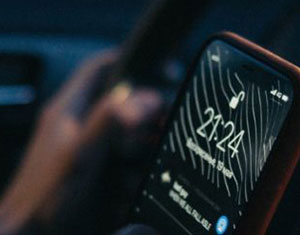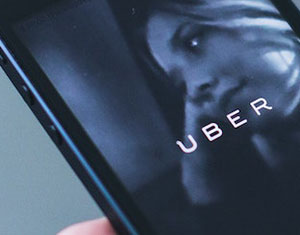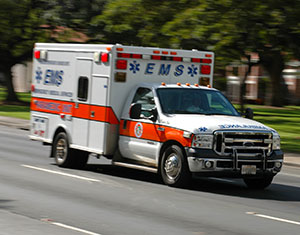Experienced Attorney Representing Car Accident Injury Victims in Georgia
If you or a loved one has become a victim of an injurious car accident, consult with Atlanta car accident attorney Stephen Apolinsky. As an experienced auto accident lawyer who is adept in personal injury and catastrophic accident cases, Apolinsky & Associates, LLC, has helped car accident victims find both closure and compensation as a result of their traumatic experience.
Atlanta auto accident lawyer Stephen D. Apolinsky has tried more than 30 auto accident cases. Spanning from cases involving commercial 18-wheeler tractor-trailer accidents to routine car collisions, Stephen Apolinsky and his legal team offer a high degree of legal expertise to handle your automobile accident claim.
What is a Car Accident Injury in Georgia?
A car accident injury is an injury sustained by a driver or passenger of a motor vehicle or automobile in Atlanta and throughout the state of Georgia. Injuries caused by vehicle collisions in Georgia can be catastrophic or potentially lead to death. Most injuries suffered in a car accident, though, will fall into one of two categories.
Impact Injuries in Auto Accidents
Impact injuries are caused by blunt force trauma from the sudden impact of the car with another object, when the driver or passenger hits some part of the vehicle’s interior. Such injuries include concussions, contusions, and traumatic brain injuries.
Penetrating Injuries in Auto Accidents
Penetrating injuries occur when shrapnel or debris from the accident (such as shattered glass or objects from inside the vehicle) punctures the skin, causing injuries such as lacerations.
Further Reading: Legal Help for Distracted Driving Accidents
Proving Negligence & Causation in a Georgia Car Accident Personal Injury Case
Car accidents occur for a wide variety of reasons. As such, each traffic collision requires a comprehensive investigation into its specific cause and effects. Still, there is one thing that most car wrecks have in common: most accidents could have been prevented. In the overwhelming majority of cases, collisions occur because of negligence.
What is Negligence in Georgia Auto Accidents?
Negligence is usually the fault of a driver. According to a study cited by traffic safety researchers at Stanford Law School, more than 90 percent of all auto accidents are caused by driver error. These errors come in many different forms. Some of the most common examples of driver errors (driver negligence) that cause accidents in Georgia include:
- Drunk & impaired driving
- Distracted driving, including texting.
- Reckless or aggressive driving.
- Speeding.
- Unsafe lane changes.
- Failure to yield to pedestrians.
- Failure to yield to vehicles.
- Following too closely.
- Running red lights.
- Running stop signs.
Establishing Negligence in Georgia Car Accident Lawsuits
In any civil tort claim in Georgia, in order to establish negligence en route to a winning verdict or settlement, the plaintiff’s personal injury attorney must demonstrate the defendant in the case:
- Owed the plaintiff a duty of care and responsibility.
- Breached that duty of care and responsibility.
- Directly caused the plaintiff’s injuries due to that breach.
and that the plaintiff:
- Suffered damages that resulted from the defendant’s breach of care.
Civil Statue of Limitations for Georgia Car Accidents
Under GA Code § 9-3-33, the statute of limitations holds that injured parties have two years to bring personal injury claims forward for car accidents, including claims for other motor vehicle types including:
- Motorcycles & ATVs.
- Buses & transportation vans.
- Trains.
- Airplanes.
- Bicycles.
- Boats.
- Semi trucks & 18-wheelers.
After two years, a court will dismiss your claim. Oftentimes, insurance companies will engage in stalling techniques to avoid paying you anything. It is important to begin working with a Georgia auto injury attorney experienced in dealing with car accident injury claims as soon as possible to build your case.
Further Reading: Understanding Negligence Per Se in Personal Injury Cases
Compensation & Damages Recoverable in Georgia Auto Accident Injury Cases
Under Georgia state law, victims injured in auto accidents have a legal right to seek financial compensation for the full value of their damages. Victims should be paid compensation for their direct financial losses as well as for their noneconomic damages.
In practice, actually getting a full and fair recovery can be immensely challenging. Indeed, in many cases, injured car accident victims are able to get the insurance company to accept liability for the crash, but they soon find out that the insurer only wants to pay them a portion of what they deserve. This is unacceptable.
Injured car accident victims need to work with an aggressive legal advocate who has the skills and experience to negotiate a just settlement offer. Depending on the circumstances of your case, this can include money for:
- Vehicle repairs or replacement.
- Medical expenses.
- Costs related to physical rehabilitation.
- Long-term disability benefits.
- Lost income, including diminished future wages.
- Pain and suffering.
- Mental distress.
- Disfigurement.
- Loss of limb.
- Wrongful death damages.
Top-rated Atlanta auto injury attorney Stephen D. Apolinsky and the dedicated personal injury team at Apolinsky & Associates, LLC, have helped many car accident victims obtain full compensation for their damages. Consult with us today for legal counsel on your case.
Further Reading: What is Pain and Suffering and How Is Compensation Value Calculated?


















